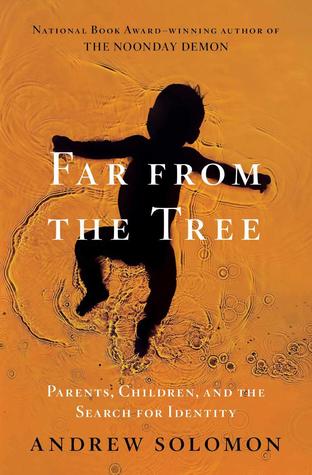More on this book
Community
Kindle Notes & Highlights
Read between
January 10 - November 4, 2020
I was struck by their inability to foresee the likelihood of danger inherent in their choices. Every bad thing that befell them, even at the hands of previous aggressors, came as a surprise.
They lacked guiding intuition and were blind to bad character until it manifested itself. Nearly all such women I met had not been cherished or protected as children.
Some who actively strove to improve their situation found themselves merely repeating their past; they kept falling back into the familiar muck.
Mindy Woods
Many parents and children I met who had coped with the obstacles associated with exceptional differences wanted to affirm their positive experiences and stand as models for others. Many had emerged from difficulty as better people and were eager to share their triumphs. By contrast, the mothers of children conceived in rape sought validation.
Barbara Schmitz
Rape-derived pregnancy has come under specific scrutiny in the context of genocidal rape.
There is a huge difference between these cases and the pregnancies through rape that occur in peacetime in the developed world, where being pregnant doesn’t get you killed, doesn’t mean you will be banned from your community, doesn’t make you unmarriageable. In the West, one can hide a child’s origins; one can give him up for adoption.
Marie Rose Matamura
Rape has been used strategically since ancient times, and recently in at least thirty-six conflicts, including those in Bangladesh, Chechnya, Guatemala, several African nations, East Timor, and the former Yugoslavia.
They have kept quiet, they have given birth at home, and if they are even more sensible, they kill their scum babies.” One of the victims of wartime rape in Sarajevo said, “It was a hard birth. It hurt a lot. But after what the Chetniks did to me, it wasn’t anything.”
After the Interahamwe killed her husband, Marianne Mukamana went to the militia’s base and offered herself, believing it was the only way to save her five-year-old daughter.
Given the burdens associated with keeping such children in conflict zones—the loss of social status, the dimmed prospects of marriage—the number of mothers who do so regardless is
astonishing.
Marcelline Niyonsenga maintains the posture of an importuning child, looking up anxiously as if waiting for someone’s permission to go on living.
In discussing wartime rape, Bishop Carlos Belo of East Timor, who shared the 1996 Nobel Peace Prize, said, “Up to three thousand died in 1999, untold numbers of women were raped, and five hundred thousand persons displaced—one hundred thousand are yet to return.”
Alphonsine Mukamakuza is tall, dramatic, and expressive, with all the grace and chiseled beauty for which the Tutsi are known.
Christine Uwamahoro’s proud, erect carriage was not typical of the violated women I met in Rwanda.
Cora Nelson
Sophia and Josiah McFeely had no idea that their seventeen-year-old son, Chuck, was supporting a cocaine habit by dealing, nor that he was carrying a gun around south Boston.
As many as three out of four incarcerated juveniles have a mental health diagnosis, as opposed to one of five in the general nine- to seventeen-year-old population.
Brianna Gandy, whose mother was a crack addict, was born with fetal alcohol syndrome and left in the charge of her grandmother. “I call my grandma ‘Mom,’ so she won’t forget that she’s taking care of me,” Brianna said to me.
Jackson Simpson shares his mother’s depressive tendency, but whereas she has manifested the illness through withdrawal and drinking, he has manifested it through failure and aggression.
Dashonte Malcolm, known to his family and friends as Cool, was sixteen when we met, a good-looking, well-spoken African-American with manners that reflect both training and instinct, and a sense of humor about himself.
As a child, Noel Marsh often saw his father, Tyrone, beating his mother, Felicity;
Karina Lopez came to the world in trouble and chaos.
“My mom never even told me about the court date, and she’s like, ‘Well, I went to court today . . . ,’” Karina explained. “My heart dropped. She’s like, ‘It was dismissed.’ I started crying and laughing at the same time. I got on my knees and I thanked God. ’Cause I prayed every day for my
mom’s case to be dismissed. It was about a thousand times more important than what happened to me. I was locked up and thinking, ‘I might not even come home to my mom,’ and that was the sentence I couldn’t face. Now I can’t wait to go home.”


